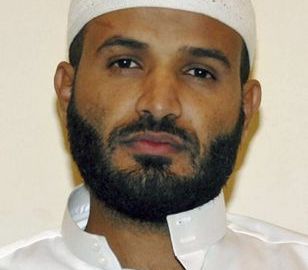The Guantanamo Conundrum

Today Charlie Savage of the New York Times, who does an excellent job making complicated legal stories understandable, has a piece on the latest bit of Guantanamo Bay news.
According to his piece, President Obama’s advisers are proposing a system that would establish a parole board-like committee to determine if a detainee is likely to pose a threat if transferred to a third country.
We have all, of course, been made aware of the dangers of releasing guilty individuals. Over the past two years a number of released Guantanamo Bay detainees have rejoined al-Qaeda, particularly al-Qaeda in the Arabian Peninsula and have participated in attacks against western attacks.
The Christmas Day attack of 2009 led to a moratorium on the transfer of detainees to Yemen, which – let’s be honest – wasn’t really proceeding at a rapid clip. Indeed most of the relapsed detainees in AQAP are from Saudi Arabia.
This is an incredibly difficult problem. The longer Guantanamo Bay detainee remains open the more rhetorical tools al-Qaeda has in its box. Already in Yemen, AQAP has done an excellent job of co-opting public support for the return of detainees. To be against Guantanamo is, in a very real way, to be for AQAP.
The issue is further complicated by the way the US acquired many of the individuals in Guantanamo. Most of them were arrested by in bounty hunts by Pakistani officials and Afghan allies, who turned all the “Arabs” they could capture over to the US. This means the US has been unable to put together complete dossiers on each individual.
The guilty are caught up with the innocent and separating the two out from each other has proven to be a task beyond the skill set of US investigators.
Now, nearly nine years after Guantanamo Bay was opened the trail has gone cold. In many cases the US simply doesn’t know who is dangerous and who is not.
I doubt a parole board will do much to solve the problem of insufficient intelligence.
For instance, Muhammad al-‘Awfi a Saudi citizen, who was at Guantanamo Bay, was released in 2007 and then in early 2009 he rejoined AQAP as a top commander. As soon as he reappeared in AQAP’s ranks, detailed biographies of him appeared on-line in jihadi forums. Information that wasn’t in CSRT. (He is, once again, back in Saudi custody.)
Another interesting case to follow is that of Jabir al-Fayfi. This is the individual, which according to different sources, was responsible for the tip (or one of the tips) that led to the discovery of the parcel bombs a few months ago. He too was in Guantanamo, then rejoined AQAP and is now back in Saudi custody.
Yesterday he went on Saudi TV to air his “confessions.” (Arabic link) The article in al-Sharq al-Awsat discusses his time in Afghanistan in great detail, something his CSRT does in minimal detail.
As his confessions continue – another segment is scheduled to be aired next week – it will be interesting to see how closely what he is saying now matches up with what US investigators thought they knew back in 2007.
This will give us a good idea of what any Guantanamo parole board will be up against.





